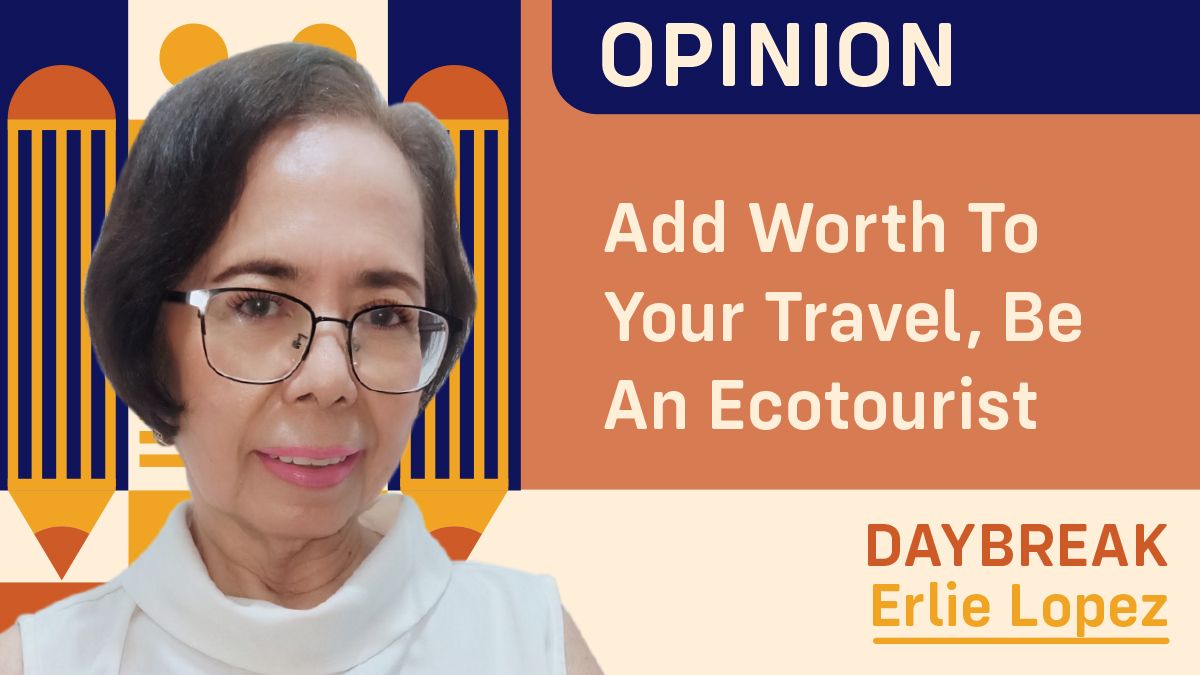You might already have made the rounds of shopping destinations, entertaining wonderlands, megacities, poster-pretty sights, so why not go the extra mile as a holiday traveler? Be an ecotourist.
Ecotourism is a concept recognized in 1982 and officially defined in 1998 by the International Ecotourism Society as “responsible travel to natural areas that conserves the environment and sustains the well-being of the local people. That meaning is still broadly used (with the inclusion of interpretation and education in 2015) and made more relevant by the United Nation’s urgent call to many nations to adopt this type of tourism as an effective strategy for sustainable development.
Has ecotourism bloomed and boomed in the Philippines since then?
The country, no doubt, is richly endowed by natural ecosystems offering pristine sceneries, exciting adventures, and unique resources. And how they have won the hearts of many Nature lovers and adventurous spirits across the globe.
Showcase
Palawan and Boracay have perennially been in the world’s top sites for beachcombers, with Puerto Princesa Underground River voted as one of the Seven New wonders of Nature in fairly recent year.
Some of our rare, and mostly indigenous, species are popularly photographed and shared in social media, among them Davao’s Philippine Eagle, Bohol’s tarsier, Bicolandia’s butanding, and Palawan’s pawikan.
The sites could have deteriorated with heavy commercialization in time while the species could have succumbed to extinction, but thanks to our biodiversity conservationists, ecotourism providers, environment educators, and government regulations, the country remains an ecotourism showcase.
Still not in the league of Costa Rica, Panama, Kenya, and New Zealand by country but figuring as specific destinations in the top 20 rankings. The government still has to do better in balancing between its economic and environmental goals in growing the tourism industry (mass tourism vis-à-vis ecotourism). And it’s up to those in the business to fully commit to the practice of environmental principles and the visitors to become ecotourists by their actions not just by hype.
Integrity
Donna Paz Reyes, Ph.D., long-time environment educator in Miriam College teaching Ecology and Sustainable Development in both undergraduate and graduate programs and a former chair of the Science department, believes in protecting the Integrity of ecotourism.
“This requires a deep understanding of the principles, elements, and practices of ecotourism so that it doesn’t get out control or downgrade to plain greenwashing usually to cover deep environment issues like mining. All stakeholders - from business (tour operators, lodgings, restaurants, transport) to communities (local government, residents as service providers) to tourists have to be schooled on the same ideals which favor conservation and local culture.”
Types of Ecotourists
There is a misperception that ecotourists are only those inclined to rough it up, in backpacks and jungle boots.
Mostly, they have deep love for Nature but some can’t sleep in thatched huts and walk on rugged trails.
Good, ecotourists fall into four types: Hard core (mainly, science researchers), Dedicated Nature lovers (those who take trips to see protected areas), Mainstream (those who go for unusual Nature trips like to the Amazon), and Casual (those who may experience Nature incidentally as part of a general tour of a Nature setting).
Rules To Go By
A variety of choices aside, the only “must” really is a desire to help the environment and the community as one explores and enjoys.
Here are some rules ecotourists can go by: 1. Follow the singsong yet encompassing advice of a tour guide: Take nothing but pictures, leave nothing but footprints, waste nothing but time; 2. Stay in local and eco-friendly lodgings; 3. Let the locals earn from their services – tour guide, boatman, vendors, among them; 4. Support conservation with entrance fees and maybe donations to protected sites; 5. Respect local culture and people – eat local food, join their festivals, listen to the folks’ tales; don’t exploit indigenous people and locals; 6. Before you leave, optionally do an environmental act for and with the community – plant a tree or mangroves, help in the coastal clean-up, enlist in a local environment advocacy program.
Don’t miss out on the chance to find a different, and maybe bigger, worth in holiday travel. Be an ecotourist.
(Ms. Erlie Lopez, a Writer, Poet, PR Consultant, Environment Advocate, can be reached via her email ad: erlielopez@gmail.com)
#WeTakeAStand #OpinYon #OpinYonColumn #ColumnbyErlieLopez #Daybreak
